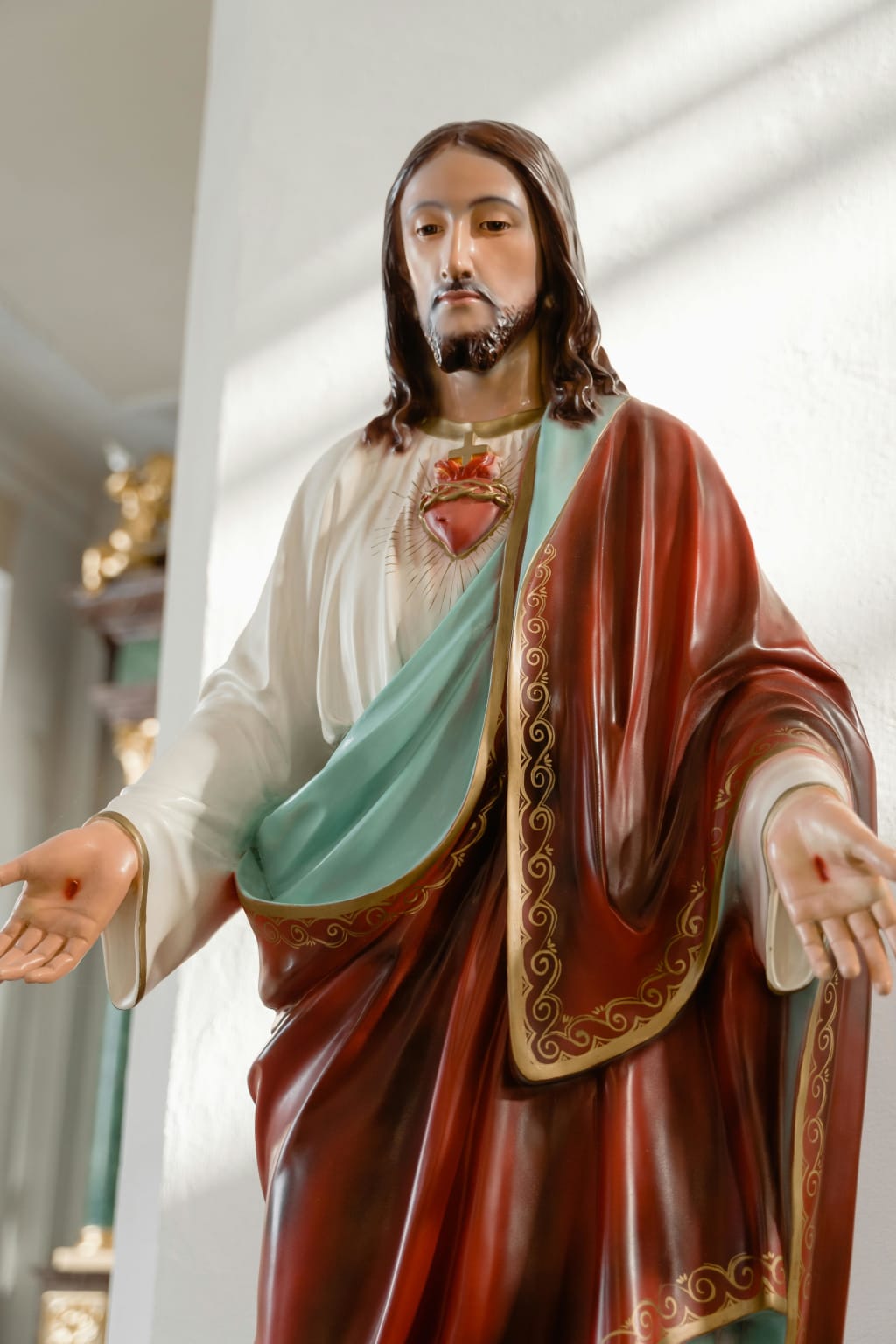
The concept of God being hidden inside man is a profound and thought-provoking idea that spans various philosophical, spiritual, and religious traditions. It suggests that the divine essence is not external to us but resides within our very being, accessible through introspection, self-awareness, and spiritual practice. This notion challenges the conventional view of God as a distant, omnipotent entity and invites us to explore the divine potential that lies within each individual.
In many spiritual traditions, the idea that God is hidden inside man is foundational. For instance, in Hinduism, the concept of Atman refers to the innermost essence or soul of an individual, which is believed to be identical to Brahman, the ultimate reality or world soul. This implies that the divine is not separate from us but is an integral part of our very existence. By realizing the true nature of the Atman, one can experience a profound sense of unity with the divine, transcending the illusion of separation and duality.
Similarly, in Christianity, the idea that God is hidden inside man is expressed through the concept of the Holy Spirit. According to Christian theology, the Holy Spirit dwells within believers, guiding, inspiring, and empowering them to live according to God's will. This indwelling presence of God suggests that the divine is not confined to churches or religious rituals but is a living, dynamic force within each person. By cultivating a relationship with the Holy Spirit, believers can experience a deeper connection with God, transforming their lives from within.
In Islam, the notion that God is hidden inside man is echoed in the teachings of Sufism, the mystical branch of Islam. Sufis believe that the divine spark resides in the heart of every human being, and through practices such as meditation, prayer, and self-discipline, one can uncover this hidden divinity. The Sufi path involves a journey of inner purification and self-discovery, leading to the realization of one's true nature as a reflection of the divine. This inner awakening is often described as a state of spiritual intoxication or ecstasy, where the boundaries between the self and God dissolve, revealing the profound unity of all existence.

The idea that God is hidden inside man also finds resonance in the teachings of various philosophical traditions. For example, in the writings of the philosopher Søren Kierkegaard, the notion of "subjective truth" emphasizes the importance of personal experience and inwardness in understanding the divine. Kierkegaard argues that genuine faith is not a matter of intellectual assent to abstract doctrines but involves a deep, personal relationship with God, cultivated through introspection and self-examination. This inward turn reveals the divine presence within, enabling individuals to live authentically and with a sense of purpose.
The psychological perspective also offers insights into the idea that God is hidden inside man. Carl Jung, the Swiss psychiatrist and psychoanalyst, proposed the concept of the "collective unconscious," a shared reservoir of archetypes and symbols that shape human experience. Jung believed that the image of God is one of these universal archetypes, reflecting a deep-seated, intrinsic aspect of the human psyche. According to Jung, the process of individuation, or the journey towards self-realization, involves integrating these archetypal elements, including the divine, into one's conscious awareness. This integration leads to a more holistic and balanced sense of self, where the divine is recognized as an inherent part of one's inner world.
The practical implications of the idea that God is hidden inside man are significant. It suggests that spiritual growth and fulfillment are not dependent on external circumstances or religious institutions but can be achieved through personal exploration and inner work. By turning inward and cultivating self-awareness, individuals can access the divine wisdom and guidance that resides within, leading to a more meaningful and authentic life. Practices such as meditation, prayer, and mindfulness can facilitate this inner journey, helping individuals to connect with their inner divinity and experience a sense of peace, clarity, and purpose.
Furthermore, recognizing that God is hidden inside man can foster a sense of compassion and empathy towards others. If the divine resides within each person, then every individual possesses inherent worth and dignity. This perspective encourages us to treat others with respect and kindness, recognizing the divine spark within them. It also promotes a sense of interconnectedness and unity, as we come to see that we are all manifestations of the same divine source.
In conclusion, the idea that God is hidden inside man is a powerful and transformative concept that invites us to explore the divine potential within ourselves. It challenges the conventional view of God as an external entity and emphasizes the importance of inner work and self-awareness in spiritual growth. By recognizing and cultivating the divine presence within, we can lead more meaningful and authentic lives, characterized by a deep sense of purpose, compassion, and unity with all of creation.
About the Creator
Enjoyed the story? Support the Creator.
Subscribe for free to receive all their stories in your feed. You could also pledge your support or give them a one-off tip, letting them know you appreciate their work.





Comments
There are no comments for this story
Be the first to respond and start the conversation.